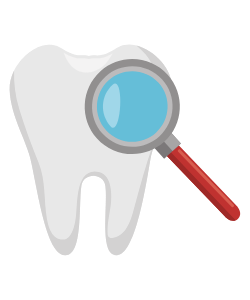If you've been gradually losing your teeth during your lifetime, you may be left with very little dentition at this point and wondering what your options are. Someone may have told you to consider dentures but do you need to take into account something known as "bone resorption"? How will this affect your plans, and will you be able to find something that will work?
Receding Bones
When your body senses that you do not have many (or any) teeth anymore, it may determine that your bone structure does not need to stay healthy to support them. In this case, your jaw may become weaker as the bone shrinks (known as resorption). This can present challenges to the dentist, but it is not necessarily an insurmountable problem.
Considering Options
Certainly, it is best to address the issue as soon as possible to slow down or even stop any shrinkage. But nevertheless, the dentist will work with you to determine the best approach for your situation and suggest alternatives.
Dentures on Implants
One possibility may be a complete set of dentures fitted over implants. This is unlike a traditional set of removable dentures, but in this case, the dentist will install anchor points at strategic positions in your jaw in order to receive the dentures. When this is done correctly, the body now believes it needs to keep the bone in good condition, which should alleviate further resorption. Once your gums have healed from the implant surgery, the dentist can then fit the dentures, and they will be anchored in place. They are much less likely to slip or cause you discomfort as you get used to them.
Looking at the Advantages
This type of solution is preferred for patients that are missing all their teeth and have experienced a lot of resorption. They give the patient more support and also require fewer adjustments over time. Typically, they will allow the patient to eat more of those challenging foods and not worry about their dentures coming loose.
Other Alternatives
There are other solutions, such as low-suction dentures, which are relatively new solutions in the dental sphere. They may not be as secure as the dentures fitted to implants, but they may be suitable in certain cases.
What to Do Next
To find out which is the best solution for your situation, schedule a visit to your dentist. They'll conduct a full evaluation and give you your options.
For more information about complete dentures, contact a local dentist.
Share
